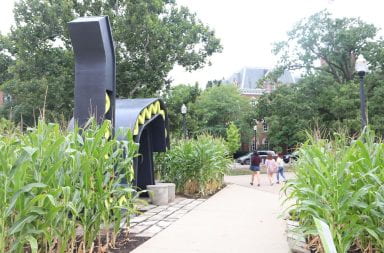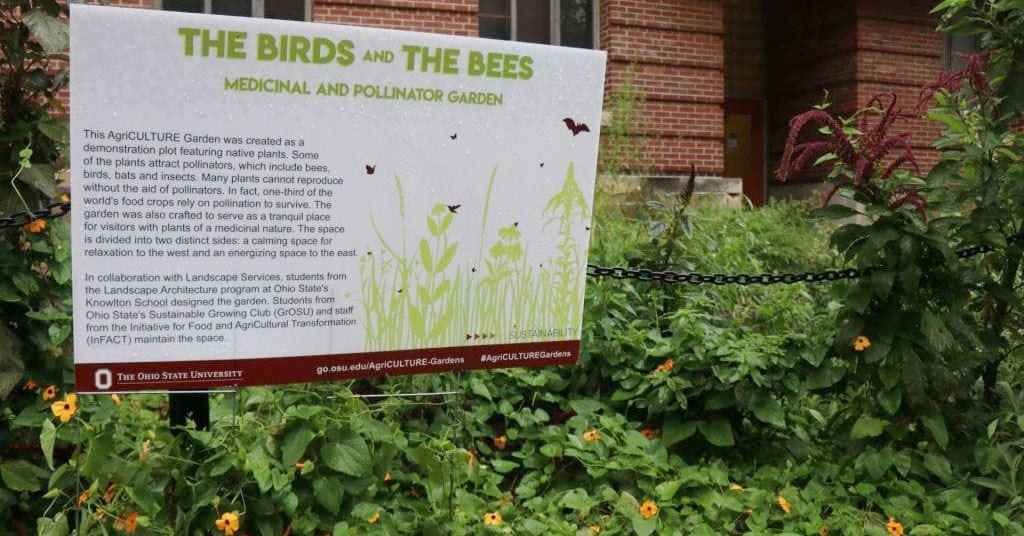Though Ohio is known for its abundance of cornfields, students can look no farther than Smith Lab for their fix of the crop.
The Sustainable Growing Club, also known as GrOSU, has partnered with the Initiative for Food and Agriculture Transformation (InFACT), to grow a pop garden outside of the building, bringing nutrition awareness and education to campus –– one crop at a time.
Corn, millet, amaranth and sorghum are available in the garden, which will be used as a learning opportunity for students in design, upkeep and harvest of a small food system.
The idea for the project came from InFACT’s executive director Brian Snyder, Nicole Pierron Rasul, InFACT program coordinator, said
“Brian wanted to see crops on main campus and transform campus landscapes,” she said. “We are interested in productive use of some spots on campus for agriculture demonstration and spaces on campus.”
The InFACT Discovery Theme program is designed with the vision of transforming Ohio State into one of the leading models and practical examples of leading models and practical examples of agricultural and food systems that are climate-resilient, secure and equitable, said Pierron Rasul.
GrOSU shares similar values and hopes to help students learn, practice and educate others about sustainable gardening.
Pierron Rasul and Angela Latham, another program coordinator for InFACT Discovery Theme, worked with Rasul on the project’s implantation in finding the perfect space to create the garden.
Christopher Ratcliff, a professor in the College of Engineering and the faculty adviser for GrOSU, said after hearing about the project, the group reached out to members of InFACT, and were given the opportunity to work hands-on with the project.
“We reached out to them to learn more about what they were doing and it happened that they were seeking some student help on the pop garden project,” he said. “Students in the club, together with myself and Forbes Lipschitz of the Knowlton School of Architecture, decided on the pop garden.”
The decision to create a garden filled with crops that “pop” –– those that puff up when cooked –– created the perfect mix for gardening education and fun for students involved, Ratcliff said.
Although this first pop garden is a trial-run for both organizations, there is great hope for future projects like this to be done across campus, Latham said.
“Our hope is by working with many partners, there will be continued growth of more spaces across campus like this,”he said.
Ratcliff said he hopes to expand the mission with similar, on-campus projects.
“We would love to work towards satisfying the university’s sustainability goals and local food pledge, or working with groups [like] Best Food Forward to help solve on-campus food security issues or perhaps use the food to do cooking demos for students to help educate about good nutrition,” he said.



